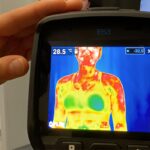The Africa Centres for Disease Control and Prevention (Africa CDC) has raised alarm over the increasing challenge in monitoring monkeypox, also known as mpox, as cases surge past 45,000 this year. During an online media briefing, Africa CDC Director-General Dr. Jean Kaseya emphasized the urgent need for strengthened surveillance measures, citing an ongoing rise in cases across the continent.
Since January, 45,327 mpox cases have been reported across 18 African countries, with 9,114 confirmed cases and over 1,000 fatalities. The past week alone saw 2,729 new cases, 1,001 of which were confirmed, and 36 deaths, underscoring the severity of the outbreak. Central Africa, particularly the Democratic Republic of the Congo (DRC) and Burundi, accounted for a staggering 96% of confirmed cases and 99.5% of mpox-related deaths.
Dr. Kaseya noted that mpox cases have spiked by 400% compared to last year’s total, with the Central African region bearing the brunt of infections and deaths. “We face immense challenges in tracking and controlling this outbreak, especially in high-burden areas,” Kaseya remarked, emphasizing the need for concerted surveillance and health resource allocation to mitigate the crisis.
In response, Africa CDC has expedited vaccination plans in high-risk countries, with the Democratic Republic of the Congo (DRC) and Rwanda showing notable public receptivity to mpox vaccination initiatives. These vaccination efforts are crucial for containing the outbreak, particularly in communities with dense populations and limited healthcare infrastructure.
Meanwhile, Africa CDC reported that Cameroon, Gabon, Guinea, Rwanda, and South Africa have not recorded any confirmed mpox cases in the past four weeks, and no deaths have been registered outside of Central Africa since last week. These countries’ success in managing mpox serves as a model for containment strategies, illustrating the effectiveness of early intervention and robust health policies.
First identified in monkeys in 1958, mpox is a viral zoonotic disease that spreads primarily through contact with infected body fluids, respiratory droplets, or contaminated materials. Symptoms typically include fever, rash, and swollen lymph nodes, but the disease can escalate, particularly in immunocompromised individuals, leading to more severe outcomes.
In mid-August, the Africa CDC declared the mpox outbreak a public health emergency of continental significance, with the World Health Organization subsequently issuing a global health alert. This designation underscores the pandemic-level threat mpox poses, not only within Africa but also internationally.
As African nations grapple with this crisis, Africa CDC’s call to action highlights the need for increased vigilance, vaccination, and cross-border cooperation. Enhanced surveillance, especially in high-burden regions, and proactive health campaigns will be vital for containing mpox and preventing further spread across the continent.











